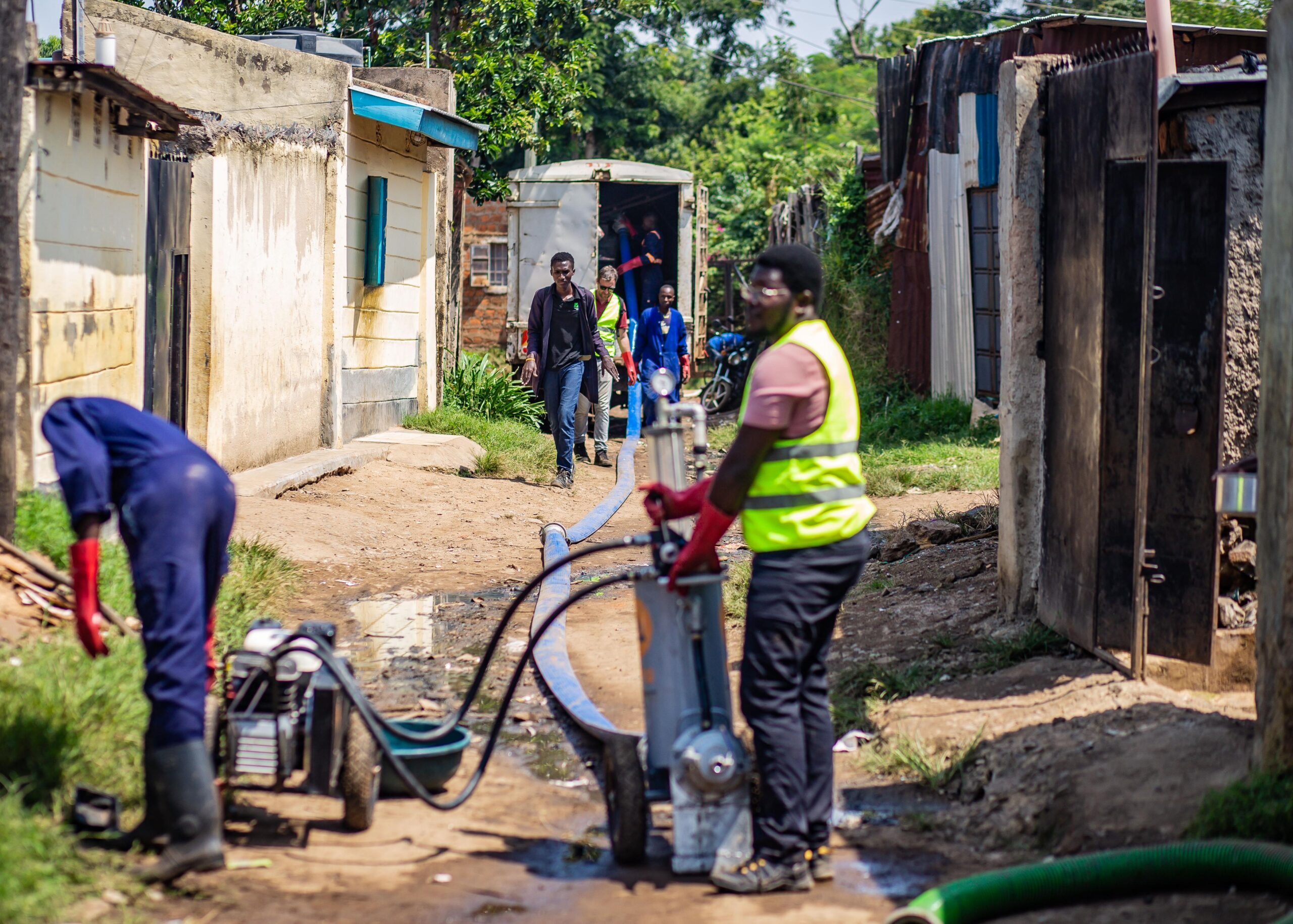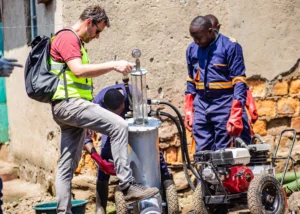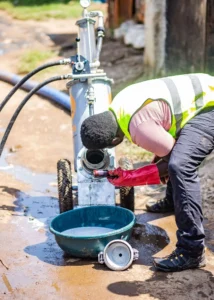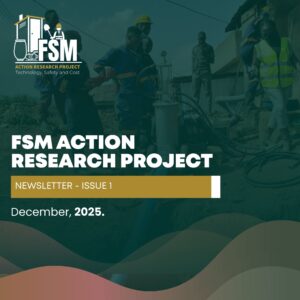The FSM Action Research Project is taking place in four African cities — Kisumu, Kampala, Kigali, and Lusaka — with a shared goal: to make faecal sludge emptying safer, more affordable, and more efficient.
While the vision is the same, the realities on the ground are vastly different. Each city’s unique settlement patterns, toilet types, accessibility challenges, and regulatory frameworks call for tailored approaches. The most effective solution is not always the most advanced technology; in many cases, simple, targeted interventions can make the biggest difference.
In Kisumu, understanding the interplay between densely built settlements, varied toilet designs, and limited access routes is shaping the way technologies and service models are tested, adapted, and rolled out.
Settlement Patterns Driving Solutions
In dense neighbourhoods like Manyatta, toilets are closely packed together. This limits the ability of large vacuum tankers to manoeuvre, making smaller, portable emptying tools such as the Gulper or Pitvaq a better fit.
Meanwhile, areas like Mamboleo enjoy better road access, which allows for the use of larger equipment like vacuum tankers. However, the area’s seasonal flooding still calls for flexible service models that protect the safety of both sanitation workers and households.
Matching Technology to Reality
The project’s work in Kisumu highlights that technology choice must align with community realities. Factors such as settlement layout, geographical features, weather patterns, and toilet construction styles all influence what will work best.
Sometimes, the biggest impact comes from relatively simple measures — like upgrading a toilet or sealing a pit — which can significantly reduce costs, improve safety, and increase the sustainability of services.
By approaching sanitation through this locally informed lens, the FSM Action Research Project aims to deliver solutions that are both efficient and equitable, ensuring communities receive services that truly meet their needs.




